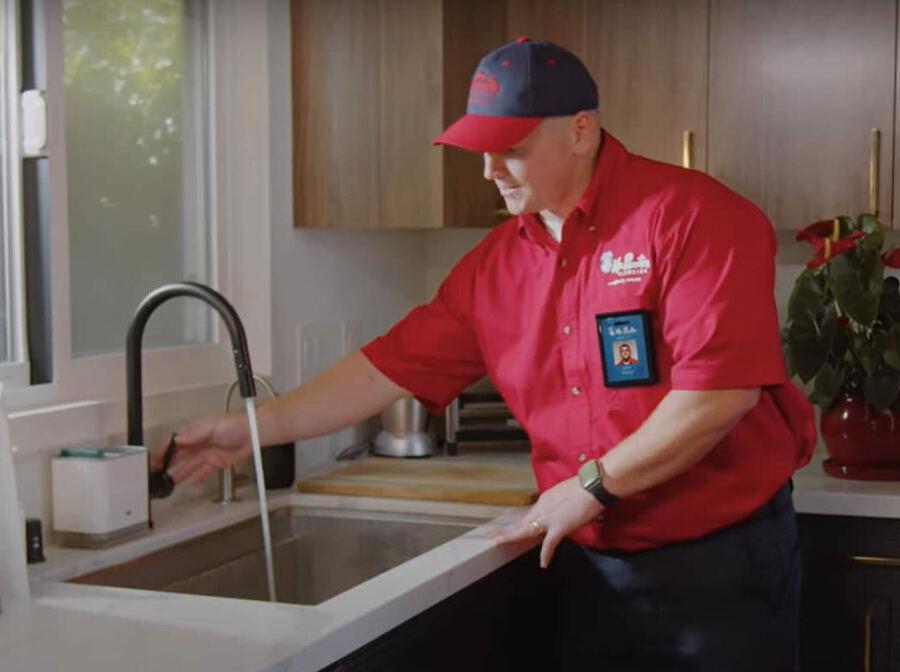Menu
Call This Saturday to Get $50 Off
Do You Need a Plumber in Dallas, TX? Call us Now to Get $50 OFF
4.8 / 5 Ratings based on 1384 reviews Great Plumbers, Great Reviews
Call This Saturday to Get $50 Off
There are several reasons why you may want to install a new faucet. Perhaps your faucet won’t stop dripping despite your best efforts to resolve the problem or the handle is broken, making it difficult to control water flow. A dripping faucet can lose around 2 gallons of water each day, while a faucet with handle complications can make daily tasks like filling pots inconvenient.

Here at Mr. Rooter Plumbing, we specialize in faucet installation and repair. If you’re looking for a qualified plumber to help you install or fix a malfunctioning faucet, give us a call. In this guide, we will walk you through the steps to follow to install a new faucet. Read on to learn how to install a new faucet.
Locate the shut-off valves for hot and cold water supply lines under your sink. These are usually knob-handled valves located where the pipes connect to the faucet. Turn the valves clockwise until they stop to shut off the water supply completely. Sometimes, these valves may be stuck as a result of mineral deposits, corrosion, or lack of use. If you’re unable to turn the valves, reach out to a nearby plumbing repair service for assistance.
Use an adjustable wrench to loosen and disconnect the nuts on the supply lines connecting to the old faucet. Turn the nuts counter-clockwise to loosen them.
Look around the base of the faucet to locate the mounting nuts holding the faucet in place underneath the sink. Use an adjustable wrench or basin wrench to loosen and remove the mounting nuts.
Once the mounting nuts are loose, you should be able to remove the old faucet by lifting it up from the sink.
Carefully follow the manufacturer’s instructions for your specific faucet model. Faucet installation can vary slightly depending on the design, but generally involves these steps:
Once everything is installed, turn on the shut-off valves under the sink to restore the water supply. Open the faucet handle and check for leaks around all the connections, including the mounting nuts and supply line connections. At this point, the faucet should be working fine if you followed the steps correctly. If you see any leaks, tighten the loose connections slightly. Be sure not to overtighten, as this can damage the faucet or connections.
Once you’ve ensured there are no leaks, turn the faucet handle on and off to check if it operates smoothly.
If you’re not comfortable installing a new faucet yourself, let the professional plumbers at Mr. Rooter Plumbing help you out. We are a top-rated plumbing repair service that you can count on for all of your plumbing repair needs. Our plumbers in Red Oak are equipped with all the necessary tools to get the job done efficiently.
The DIY spirit in the U.S. is more alive than ever, with…
Read More+The drainage system in your home is vital for maintaining convenience and the well-being of…
Read More+Leaks are the most common plumbing problems in residential and commercial buildings. However, minor…
Read More+Did you turn on your water, but it had a weak flow…
Read More+